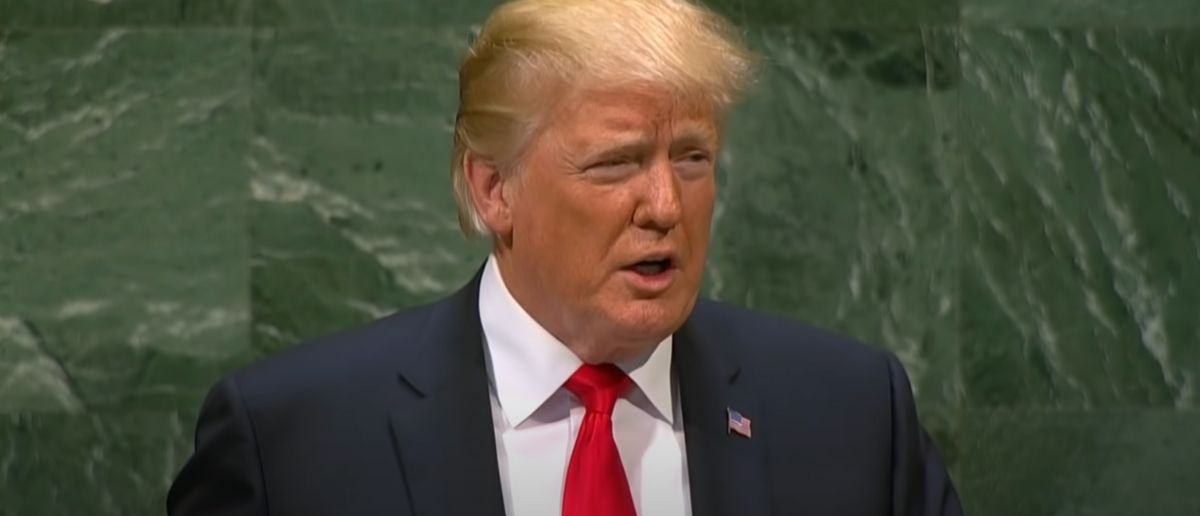
Donald Trump has major promises to fulfill. He’s lining up one win after another.
And now President Trump’s just made a simply game-changing decision for the future of America.
Trump Administration Unveils Plan to Safeguard U.S. Farmland from Foreign Threats
On Tuesday, the Trump administration introduced the U.S. Department of Agriculture’s (USDA) National Farm Security Action Plan, a strategic initiative aimed at protecting American farmland from foreign adversaries. The plan, detailed by Agriculture Secretary Brooke Rollins, combines federal and state-level measures to prevent foreign entities from acquiring U.S. agricultural land and to shield critical agricultural research from intellectual property theft. According to USDA data, Chinese entities owned approximately 338,000 acres of American farmland in 2020, raising concerns about national security.
“American agriculture is vital not only for feeding our families but also for ensuring our nation’s security and countering foreign actors who seek to control our farmland, steal our innovations, and exploit vulnerabilities in our food systems,” Rollins stated. “Our farmers’ work is foundational, which makes it a target for adversaries.”
Rollins was joined by key cabinet members, including Defense Secretary Pete Hegseth, Homeland Security Secretary Kristi Noem, Attorney General Pam Bondi, and several congressional representatives, at a press conference in Washington, D.C., to announce the initiative.
The USDA, alongside other federal agencies, will work to restrict Chinese nationals and other foreign entities from countries deemed adversarial from purchasing U.S. farmland. Additionally, the plan seeks to terminate departmental agreements with entities tied to such nations, Rollins explained to reporters on Monday.
Rollins highlighted that over 265,000 acres of U.S. land, much of it near military installations, are owned by Chinese nationals. She presented a visual aid during the press conference showing the proximity of these land holdings to American military bases.
The Department of Justice (DOJ) recently charged two Chinese nationals on June 3 for attempting to smuggle a dangerous fungus classified as a bioweapon, which could have severely impacted U.S. crops, livestock, and public health. A 2018 White House report estimated that Chinese intellectual property theft cost the U.S. between $180 billion and $540 billion annually.
In a notable case from 2016, a Chinese national was apprehended in Iowa for stealing corn seeds, an incident that continues to unsettle local farmers. Hegseth and Rollins emphasized during the press conference that “food security is inseparable from national security.”
Trump Administration’s Efforts to Counter Foreign Influence in U.S. Agriculture
The Trump administration has taken a proactive stance in safeguarding American agriculture from undue foreign influence, particularly from nations like China, which have increasingly sought to acquire U.S. farmland and exploit agricultural research. The National Farm Security Action Plan is a cornerstone of these efforts, demonstrating a strategic approach to protecting a critical sector of the U.S. economy. By prioritizing both legislative and executive actions, the administration aims to ensure that American farmland remains under domestic control and that its innovations are secure.
The initiative comes in response to growing concerns about foreign ownership of U.S. agricultural land. Data from the USDA indicates that Chinese entities have acquired significant tracts of farmland, often strategically located near military bases, raising alarms about potential espionage or sabotage. The administration’s plan to restrict such purchases is seen as a necessary step to mitigate risks to national security, with officials like Agriculture Secretary Brooke Rollins leading the charge in highlighting these vulnerabilities.
Beyond land ownership, the Trump administration is addressing intellectual property theft, a persistent issue in U.S.-China relations. The DOJ’s recent charges against Chinese nationals for smuggling a bioweapon-grade fungus show the administration’s vigilance in combating threats to the agricultural sector. Such actions demonstrate a commitment to protecting not only the physical assets of American farmers but also the intellectual capital that drives agricultural innovation.
The administration’s collaboration with state governments is another key aspect of its strategy. By aligning federal and state efforts, the Trump team is creating a unified front to deter foreign adversaries from exploiting U.S. agriculture. This cooperative approach ensures that policies are tailored to local needs while maintaining a national focus on security, a move that has been praised by agricultural stakeholders.
Efforts to bolster cybersecurity in agricultural research are also underway. The administration has recognized that foreign entities, particularly from China, have targeted proprietary technologies, such as genetically modified seeds and advanced farming techniques. By strengthening protections around research institutions and private companies, the Trump administration is working to preserve America’s competitive edge in global agriculture.
The emphasis on “food security as national security,” as articulated by Defense Secretary Pete Hegseth, resonates with farmers and policymakers alike. This perspective has garnered support from rural communities, who see the plan as a validation of their contributions to national stability.
In addition to legislative measures, the administration is leveraging existing trade policies to limit foreign access to sensitive agricultural markets. By scrutinizing trade agreements and imposing stricter oversight on foreign investments, the Trump team is signaling a robust defense of American interests.
The administration’s proactive measures have not gone unnoticed. Industry groups, such as the American Farm Bureau Federation, have expressed support for the National Farm Security Action Plan, citing its potential to protect farmers from predatory foreign practices. The plan’s focus on both immediate threats, like land purchases, and long-term risks, such as intellectual property theft, positions it as a comprehensive strategy.
Stay tuned to the DC Daily Journal.





